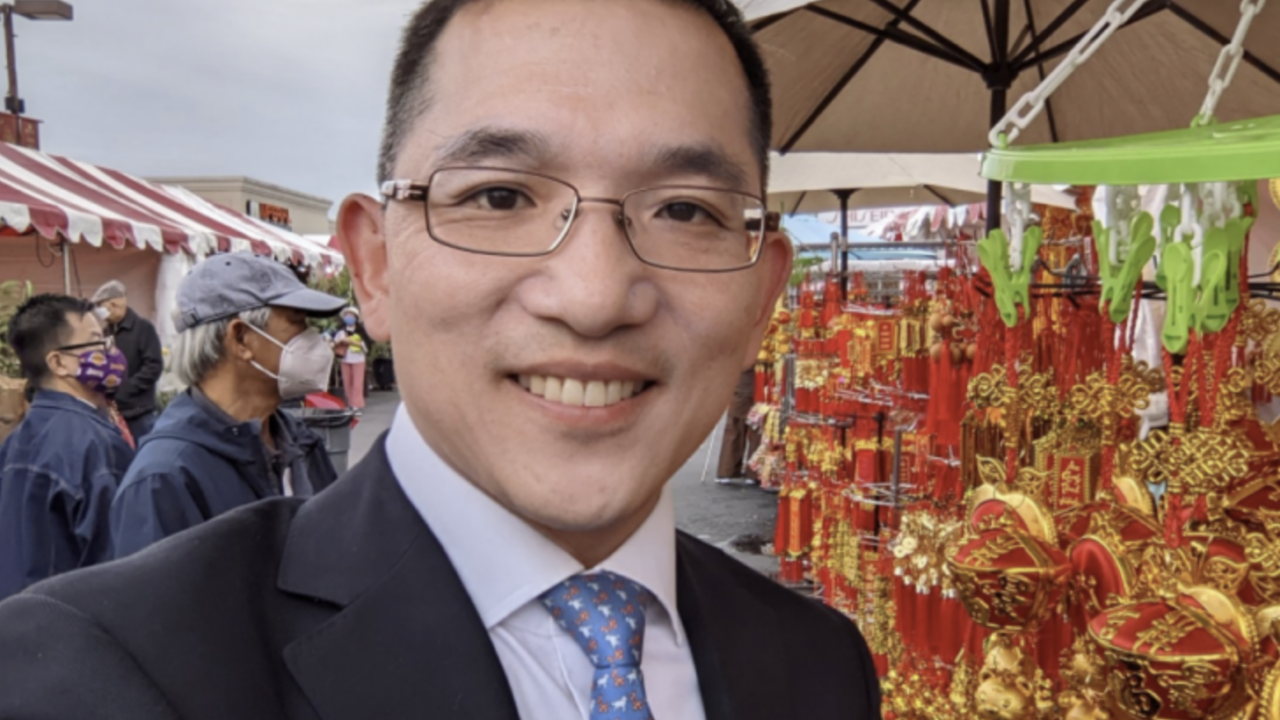Jay Chen Hates Increased Tuition Costs, Except At The College That Pays Him

Jay Chen claims student loan debt is “one of the greatest crises faced by our country.”
According to a report from the Free Beacon, “He would know—as president of a local college’s board, he voted to hike tuition three times,” leading to a 45% increasein nonresident tuition and a 32% increase for residents.
If Jay is looking for who’s responsible for the student debt crisis, he need only look in the mirror.
In case you missed it…
This California Dem Hates Increased Tuition Costs, Except at the College That Pays Him
Collin Anderson | Washington Free Beacon
June 2, 2022
A Democrat running for Congress in California says student loan debt is “one of the biggest crises faced by our country” as tuition costs “skyrocket.” He would know—as president of a local college’s board, he voted to hike tuition three times.
Jay Chen became president of Mt. San Antonio College’s board of trustees in 2015, his LinkedIn states. Over the next four years, the Democrat voted three times to raise nonresident tuition, according to board meeting minutes. In total, per-unit tuition at the college for nonresidents has increased 45 percent during Chen’s tenure on the board. Total attendance cost for in-state students has also increased 32 percent since 2015.
Chen has not discussed his votes to raise tuition at the college on the campaign trail, where he is running to unseat Republican congresswoman Michelle Steel (Calif.). The Democrat has, however, lamented the rising cost of college tuition. Chen’s campaign site in September touted his trustee position at Mt. San Antonio College and called student loan debt “one of the biggest crises faced by our country as the cost of going to college continues to skyrocket.”
But Chen went on to scrub that language from his site, suggesting he may have been concerned that his college’s repeated tuition hikes could be exposed. Chen’s updated education issues page contains rhetoric that is watered down considerably—the page does not mention Mt. San Antonio College, student debt, or rising tuition costs at all. Instead, Chen’s site merely states that the Democrat “supports efforts to make college more affordable and accessible to everyone.”
Chen told the Washington Free Beacon that he was “able to keep costs low for Californians attending Mt. San Antonio College” during his time on the board and noted that most students pay in-state tuition. He did not return questions regarding why he changed the education section of his campaign site. The Democrat’s reasons for voting to raise tuition at Mt. San Antonio College are unknown—taped recordings of the school’s board meetings are only maintained for 30 days. Chen’s candidate financial disclosure shows he received a $3,750 “trustee stipend” from the college in 2020 and 2021.
Prior to his role at Mt. San Antonio College—a two-year school based in suburban Los Angeles—Chen served on the Hacienda La Puente school board. As a board member in 2010, Chen spearheaded an effort to bring the “Confucius Classroom” program into the district’s K-12 classrooms. That program is funded and run by China’s Ministry of Education, a Chinese Communist Party arm that provides American K-12 schools with teachers and curriculum materials. It’s also linked to the CCP’s Confucius Institute program, which the State Department labeled a Chinese propaganda entity in 2020.
Chen’s embrace of the Confucius Classroom program sparked controversy in his race against Steel. When the Republican highlighted Chen’s support for “CCP-sponsored schools,” Chen accused Steel—one of the first Korean-American women to serve in Congress—of engaging in “anti-Asian racism” and contributing to the “rise in violent, anti-Asian hate crimes.” Just months later, Chen mocked Steel’s accent during a campaign event.
“She just had another town hall the other day. And it’s tough. Like, we’ve transcribed it,” Chen said. “You kind of need an interpreter to figure out exactly what she’s saying. The more she speaks, the better for us.” Chen’s comments prompted more than 20 Asian American advocacy groups to protest outside of the Democrat’s office.